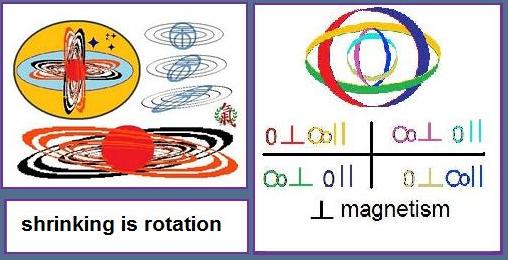
Primal Observations March 13, 2010 ThePeSla, L. Edgar Otto
It was a nice walk to the coffee shop this morning. That the snow cover was almost melted away seemed so strange- or the crows in the branches quiet and close together like turtle doves. I notice the round tower turret in the old Victorian house must have flat windows. I did not notice like on the way back from the open mike down town that I could feel the inner structure as if touching the buildings although they were deep in the foggy night. Essentially, in this awkwardly worded post of almost a poetic concentration of meaning I am talking about a higher level of infinity which may be the next rung on a ladder to understanding things about the world and ourselves that may apply as well as be imagined also.
The high level distinctions between sequence and series, length and distance, locality and non-locality, everlasting and eternal, multiple or independent backgrounds of non-necessary interaction, and the a priori given or not of the intelligible, is tied up with our ideas of the physicality of that absolute or the relativism of real or interpreted design systems. Here logic or the illogical can trump mathematics per se as well the physical implications at a lower unity level of finite and transfinite (here aleph's greater than say 2) thoughts as holographic surfaces and singularity.
We seem to stand midway (in the physical real at least) and at a maximum order between two great principles of observation. Where we are in the inertial design
of things influences what we observe on the macro-scale and what we observe on the micro-scale is changed by our observation.
To imagine, assert distinctions between branes (note to roommate- while meditation may bring a sense of unity to our brains it also establishes a distance or distinction so the issue is if these can unify and heal thinking or cause disorder- well at least you can meditate for the fun of it but we are subject to that taught and experienced over time by the observations of others and deep logic in the world.)that are here and there, perhaps cyclic in interaction, that the symmetry breaking of dimensional freedoms may so be separated explicityl in general, that we can decides from wider possibilities the number of unobservable "holes" in a space structure, is hauntingly incomplete.
If a quasic sequence is relative to some distinct pixel of observation, so too the higher transfinity of multiple branes, also the logic and math of such brane interaction may explicitly recover absolute interactions as if the idea of prime numbers as identity and unity are not necessarily the case then their being the irreducible ground of explanations as the fundamental theorems of fields of maths is not the deepest or highest case. More than one consciousness may share observations.
Consciousness, the Observer, in a sense is also at a place of maximum disorder, a bottomless pit or not of identity in a solid background of essential physicality or as spiritually perhaps far from the Primal Creative. Some such distinctions are self-induced and self-fulfilling and some are fragmented, incomplete, independent on familiar scales.
The moon exists even if no one observes it or does so as the observer sees it. Yet in the logical possibilities (enumerating them intuitively and so on...) neither the observer or the moon may exist independently; it may exist only upon observation or the intelligibility of the objective universe grounds the region of the existence of the observer.
Futhermore the logic between observer and the observed may be multivalued. In a higher sense the evolving yet fixed coordinate of that observed and observing might create anew what was not there heretofore to observe... and so on. Observation is a quasic and quasi-matter. The design and gounding of logic systems is usefull and intelligible in living things when it restricts its bounds of a universe of discourse. Yet in intelligent, sentient things, logic itself is subject to designed and primal observations.


No comments:
Post a Comment